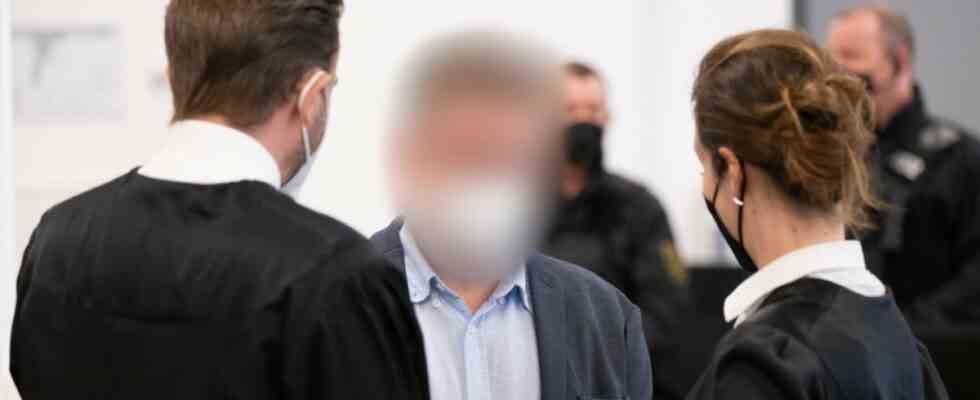Alexander S. enters the courtroom in a good mood, he smiles at his lawyers – and actually has every reason to do so. Because the state protection senate of the Dresden Higher Regional Court is ready to enter into a deal with the entrepreneur: lifting of pre-trial detention and reduction of the prison sentence if S. confesses. He himself and the Federal Public Prosecutor have agreed to this agreement.
S. is accused of violating the War Weapons Control Act and the Foreign Trade Act. From 2017, the Leipzig entrepreneur is said to have illegally supplied laboratory technology to the Russian defense industry via a network of front companies controlled by the Russian secret service, thereby generating income of around one million euros.
Each case is well documented. The court has e-mails and wiretapping logs of phone calls in which S. is negotiating with Russian business partners about the delivery of various devices. The 57-year-old was able to review the relevant files before he was admitted, so he knew there was little room for excuses in court. And yet he almost squirms when questioned by the presiding judge Hans Schlueter-Staats, who wants to know whether S. deliberately violated legal requirements.
S., who speaks Russian fluently, worked for a long time in a company for geophysical measuring systems, later set up his own business and maintained good business relations with Russia. He supplied material and equipment that could also be used by Russian armaments companies. But after the annexation of Crimea in 2014, the EU banned military exports to Russia. The export of so-called dual goods, which can be used civilly, for example in energy production, but also militarily, was initially permitted. Due to the currently applicable sanctions, however, this regulation is no longer valid. Until the beginning of the war in Ukraine, the Federal Office for Economics and Export Control (BAFA) was responsible for the control, which required proof of the intended use and the buyer.
“The interest was that we can also realize the deliveries”
It was Bafa that Alexander S. warned about his business partners in Russia. This included a university in Yekaterinburg that works with defense contractors and is linked to Russian intelligence. But instead of ending the collaboration, S. tried to cover it up. He submitted certificates to Bafa, according to which a glove laboratory box would be delivered to an agricultural science institute for the analysis of molecular samples. S. stated that a medical institute was responsible for the delivery of an agitator. However, the devices were ordered by the very university in Yekaterinburg that is blacklisted by Bafa.
“The interest was that we could also make the deliveries,” says Alexander S. in court. The entrepreneur was under enormous financial pressure due to the EU embargo. According to S., sometimes there was not enough money in the account to order the equipment needed in Russia. Although there were advance payments for it. This caused delays in deliveries, S. tried to hold off his impatient customers.
“The economic interest is obvious,” says presiding judge Hans Schlueter-Staats. For him, however, it is much more important whether Alexander S. deceived Bafa in order to be able to process the orders. S. denies that. “I never proceeded with this goal in mind,” he says. Schlueter-Staats reads from wiretapping logs and e-mails that prove that S. himself instructed his customers in Russia to enter certain institutes in the certificates in order to obtain an export permit. When asked about this, S. remains silent or says he can’t remember.
Finally, Schlueter-Staats says that he no longer wants to make accusations. Contrite, he sends S. into a longer pause for reflection, and it almost seems as if Alexander S.’s smile in the morning was premature and the deal fell through. When Alexander S. is back in the room, he at least admits that he knew the actual end users of the equipment he had supplied. He at least accepted the fact that these could ultimately not be used in medicine but in the armaments sector.
Schlueter-Staats speaks of a “skinny” confession, but nothing stands in the way of the agreement. It also stipulates that the state security senate will drop two central charges, namely that Alexander S. is said to have worked with the Russian secret service and to have promoted the production of chemical weapons through his deliveries. He faces a maximum of 3.5 years in prison.

